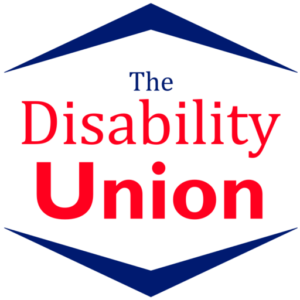Comment by Jess Muxlow
The Olympic games of Tokyo 2020 have finally come to a close, with Great Britain obtaining sixty-five medals in total across a plethora of disciplines. The games which were delayed until the summer of 2021 due to the coronavirus pandemic, took place in Tokyo from the 23rd of July till the 8th of August 2021. Following this are the Paralympic Games which are currently taking place.
The Tokyo 2020 Paralympic Games features 539 events across 22 sports including Archery, Athletics, Shooting, Wheelchair Rugby, and Wheelchair Fencing. The Paralympics are an opportunity for the disabled community to exhibit their talents, raise awareness of their abilities and bring the issue of disability to the forefront of society, albeit for a short period of time. The question as to why the Olympic and Paralympic games are separate events has been answered by Craig Spence, director of communications at the International Paralympic Committee, who explained that the events are actually two wholly different things. Spence explained this as being demonstrated by the International Olympic Committee [IOC] representing able-bodied athletes, while the International Paralympic Committee [IPC] representing Paralympic athletes.
Spence continues from this, explaining that the first Paralympics did not take place until the summer of 1960. One possible explanation for this is that disability sport was only widely introduced after World War II, as a means to encourage exercise among those injured in the conflict. Therefore, the creation of the Paralympic Games was founded on the societal attitude toward injured veterans. However, Spence explained that the separation between the Olympic and Paralympic Games was not just based on historical tradition, but on logistic possibility too. Speaking to Insider in 2016, Spence explained that “If we were to combine the two, then we would have 15,000 athletes, we would need a far bigger athlete village. Logistically, the event would take probably five weeks to complete, and it just doesn’t logistically make sense to bring the two together”.
Further to this, the IPC has signed a Memorandum of Understanding with the IOC, to extend their co-operation to 2032. This agreement between the Olympics and Paralympics allows the events to run concurrently and promises that the two bodies work together to promote the “Paralympic brand.” According to the document, they do this by “deepening existing cooperation,” and guaranteeing the “financial stability and long-term viability of the IPC.” It makes no mention of a possible merger of the games based upon the issues of tradition and logistics previously mentioned.
However, several Paralympic athletes have advocated for the merging of the Olympic and Paralympic games. Ryan Raghoo, the British long jump record holder for his T36 disability category, told Business Insider in 2016, that combining the two events could be an opportunity to give disabled athletes the same status, media exposure, and sponsorship opportunities as Olympic athletes. This in turn reflects on the perception of disability in society as a whole. The Paralympic games received on average 2016 4.11 billion viewers, an increase on the 3.83 billion viewers of London 2012. This is statistically higher than the viewers of the Olympic games, 3.6 billion in 2016 and 2012 respectively. What does this suggest about the societal attitude to the Paralympics?
Although this only compares one aspect of the impact the games have on society, it is clear that there is a precedence for watching the Paralympic games, over and above the Olympic games. A study conducted by Pullen, Jackson, and Silk in the European Journal of Communication (2020) suggested that the positive societal attitude to the Paralympic games is fostered through a greater appreciation of Paralympic sport as an elite sporting event, the ‘normalisation’ of the technologically enhanced disabled body and an awareness of emerging cultural citizenship concerning disability rights-based discourses.
It seems that the Paralympic Games as an event in itself is gaining popularity, raising awareness of disability and life as a disabled person, while normalising the enhancement of disabled bodies through technology. Therefore, perhaps it is a good thing the event is a separate entity from that of the Olympic Games. Being separate and segregated is having a positive impact on the overall experience of the disabled community, as well as the athletes competing in the games themselves. Therefore, it is reasonable to conclude that the continuation of the Paralympic Games as a separate event from that of the Olympic games is mutually beneficial to both able-bodied and disable bodied athletes and their communities.



